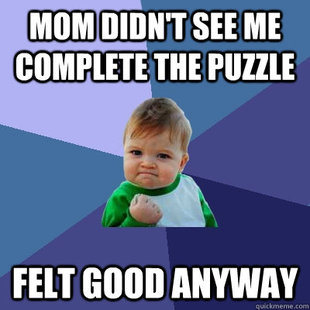“Epic” is one of the most misused
words today. It is also one of the most overused.
People use it to describe a
clever retort. They use it to describe a nap. They use it to describe a trick.
And they use it to describe a pizza. In fact, if someone evaluates
anything positively now, it seems that he will invariably declare it “epic.”
But this is nonsense, and hopefully a passing linguistic error.
Despite its
misuse, the word “epic” has a legitimate and easily graspable meaning. As an
adjective,
it means “heroic or grand in scale or
character” and, as a noun, it indicates “a long film, book, or other work
portraying heroic deeds and adventures.”
It is ironic that in a world where
so little can be
called epic—according to the word’s actual meaning—so much mistakenly is. It is
also a bad omen, because whether struggling to gain more money, to achieve
happiness, or to live in a free society, everyone today faces huge challenges and could get much out of a true epic.
Without the experience of reading great literature or great movies, and especially epics within
them, what will people do? Chances are they will fight for their values to some
extent, no matter what they are, but not with the burning passion or with the
persistence that winning them requires.
Epics, as works of art, have particular features that allow those who read them
to act otherwise, to approach their life, and the pursuit of their values, with
vigor.
The style of epics, for one, is notably grand in its use of language, symbols,
and descriptions. In
The Iliad, you don’t just see the sun come up
or—Zeus forbid—watch it mosey across the sky; rather, you see the “rose-red
fingers” of Dawn shine across it. Characters, such as Achilles, are not
statistical composites of your neighbors; they are high-hearted, mighty, like
unto the gods. And so on.
There is something uniquely un-folksy about the epic style, and examples
abound. Stated positively, however, the language is of a world that might have
huge forces arraigned against its heroes but seems a place that offers them the
chance of sacred moments and of a success to be earned.
This should not be surprising for it matches the content of epics—that is, the
grand style is consistent with the story it tells of specific kinds of
characters who face huge challenges.
For example, Odysseus, the hero of
The Odyssey, must battle gods and
men, as well as his own desires, and do so successfully, across decades, before
reaching his goal and returning home to his wife, Penelope. Likewise, in
Beowulf,
the hero must battle against huge beasts, using the sword of past giants to
defeat one.
No matter the epic, however, in terms of both content and style, they are
grander in a way than everyday life.
But so what—what is useful about viewing someone who overcomes such odds or even just battles admirably against them?
Seeing someone tackle immense obstacles, gives readers a useful perspective for
viewing their own challenges. And, in seeing heroes overcome those huge
obstacles, readers can better tackle their own, smaller ones with passionately
-driven tenacity.
The more difficult question to answer is this: In a world where so many people
point to so many things as epic, where can one discover the true epics, those
that deliver on the above promise?
(
Click here for my answer.)





